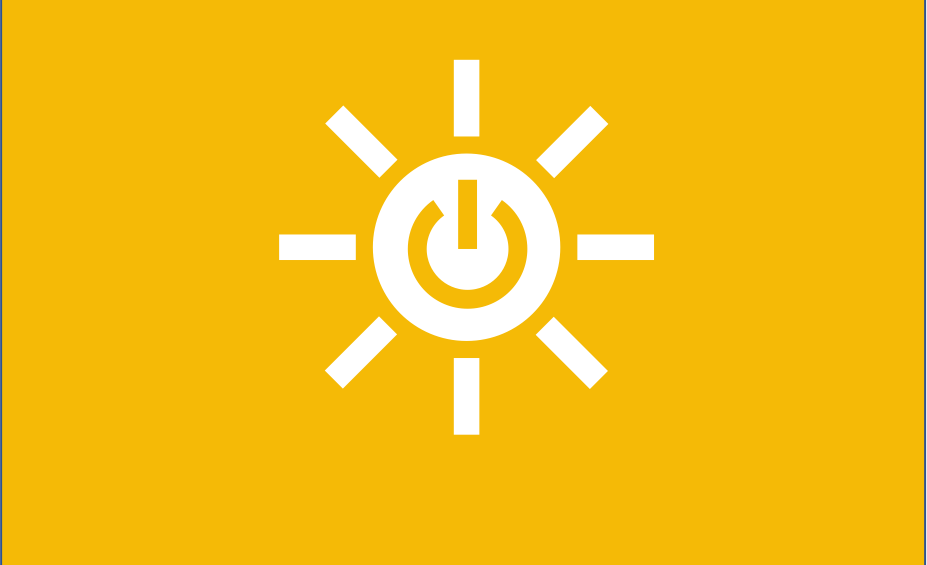Human rights have been dictated to us since elementary school where many of us have read them every day with the class, but we have rarely associated them with the right to have electricity. So, we will analyze many concepts and issues starting from energy poverty, to see if the right to have electricity is part of the basic rights and where it lies between the right to citizens and the responsibility of government.
The conditions that predetermine whether or not we are in energy poverty are: energy efficiency in buildings, energy cost and family income. In other words, when a person/family is unable to provide the necessary energy in the home at an affordable price, we are dealing with energy poverty.
“Energy poverty is the situation in which a family cannot access energy services at a level that can meet its social and material needs”. While, the factors that risk families to go into energy poverty are:
- The increase of the price of electricity is higher compared to the increase in revenues
- Inability to provide energy at a low price
- Increasing household needs for energy
- Lack of efficiency in energy use
- Policy interventions
The conditions that predetermine whether or not we are in energy poverty are: energy efficiency in buildings, energy costs and household income. In other words, when a person / family is not able to provide the necessary energy in the apartment at an affordable price, we are dealing with an energy poverty.
When we talk about providing the necessary energy we are talking about the fulfillment of a number of basic rights such as: the right to a sufficient standard of living that corresponds to adequate health and lifeLaw No.25 including food, clothing, housing, medical care and necessary social services; Everyone has the right to education. Here it should be taken into account that the school education often can be online (case of pandemic) or accomplishment of tasks/homework by electronic means and internet.
According to the study(only in Albanian) conducted by EcoAlbania in 2018, in Tirana over 45% of surveyed households use electricity as the only way to cook, 69% of them use electricity to provide water to their homes by pumping, 68% use electricity to heat their home, 62% to cool it during the summer season and 95% of households use electricity to heat water. Cut to, in conditions of energy poverty, many families would not be able to meet these basic needs. In addition to what we talked about above, it is worth mentioning the fact that the needs of households for the use of energy are increasing more and more, the right to access information is ensured through having an electronic device, internet, television, etc. All of these constitute a wide range of rights secured by electricity. This right is very important even for United Nations governments.
In the goals of the United Nations for sustainable development launched as an action plan in 2015 to be realized by 2030, as the 7th objective is the provision of affordable and clean energy. Ensuring affordable, reliable, sustainable and modern energy access for all. Translated differently into 5 measuring components:
- AVAILABLE to all, in sufficient quantity.
- ACCESSIBLE to all, implying four sub-components: geographically accessible, economically accessible, without discrimination, and having access to information.
- ACCEPTABLE to all, meaning it supports a wide range of general needs (e.g., cultural, climatic, etc.) while also recognizing more specific physical needs (e.g., for pregnant women).
- Of sufficient QUALITY to all, meaning sufficiently reliable, safe, scientifically sound, etc.
- SUSTAINABLE to all, increasingly this aspect is embedded.
One of the reasons why the Sustainable Development Goals (SDGs) and Agenda 2030 are a transformative development framework is that they are based on human rights4. Albania as a UN member is committed to the 2030 agenda with the support of UNDP to achieve the Sustainable Development Goals.
For the reasons listed above we can say that electricity is a basic right, which should be guaranteed to everyone, geographically and economically accessible. The study conducted in 2018 showed that 42% of households have difficulty paying their electricity bill. While many mountainous areas during the winter period have power outages thus conditioning not only families but also tourism businesses. (Valbona case) So we say that Albania’s work to guarantee clean and sustainable electricity is still great and so steps must be taken. Specially to see alternative solutions to provide energy as it is through solar panels and not Hydropower.









